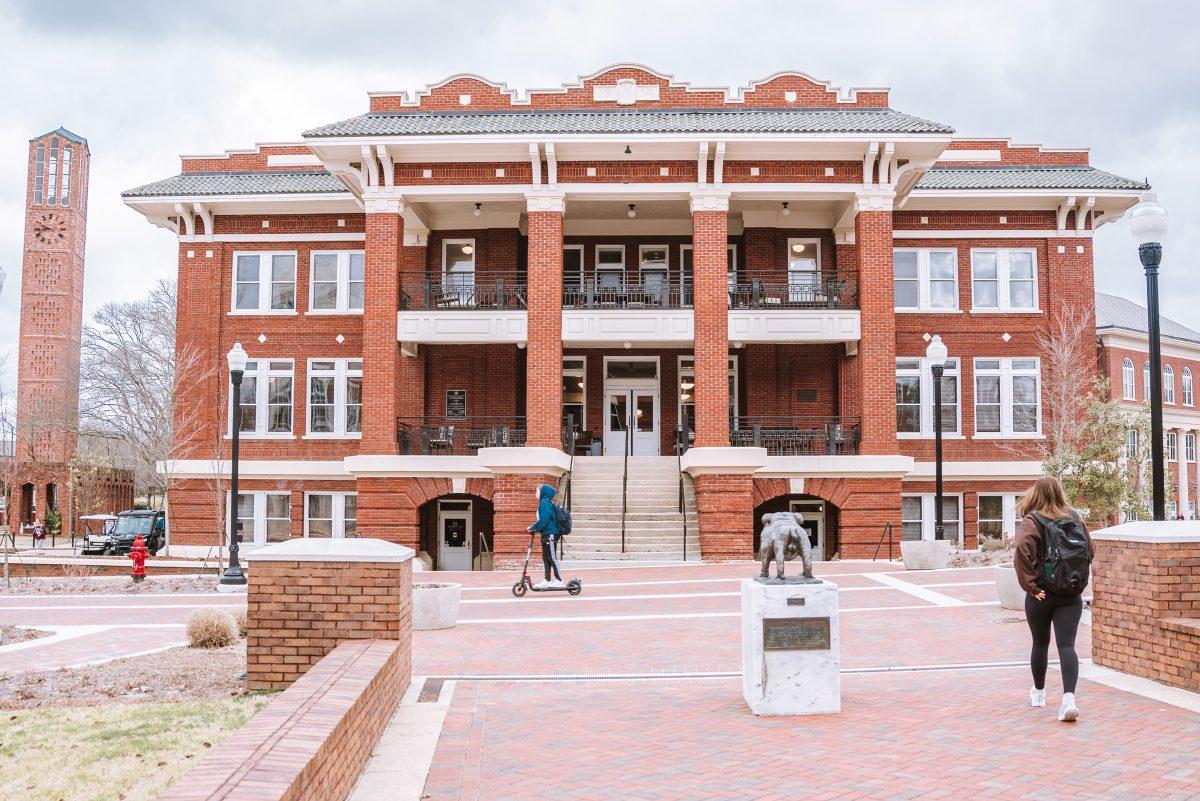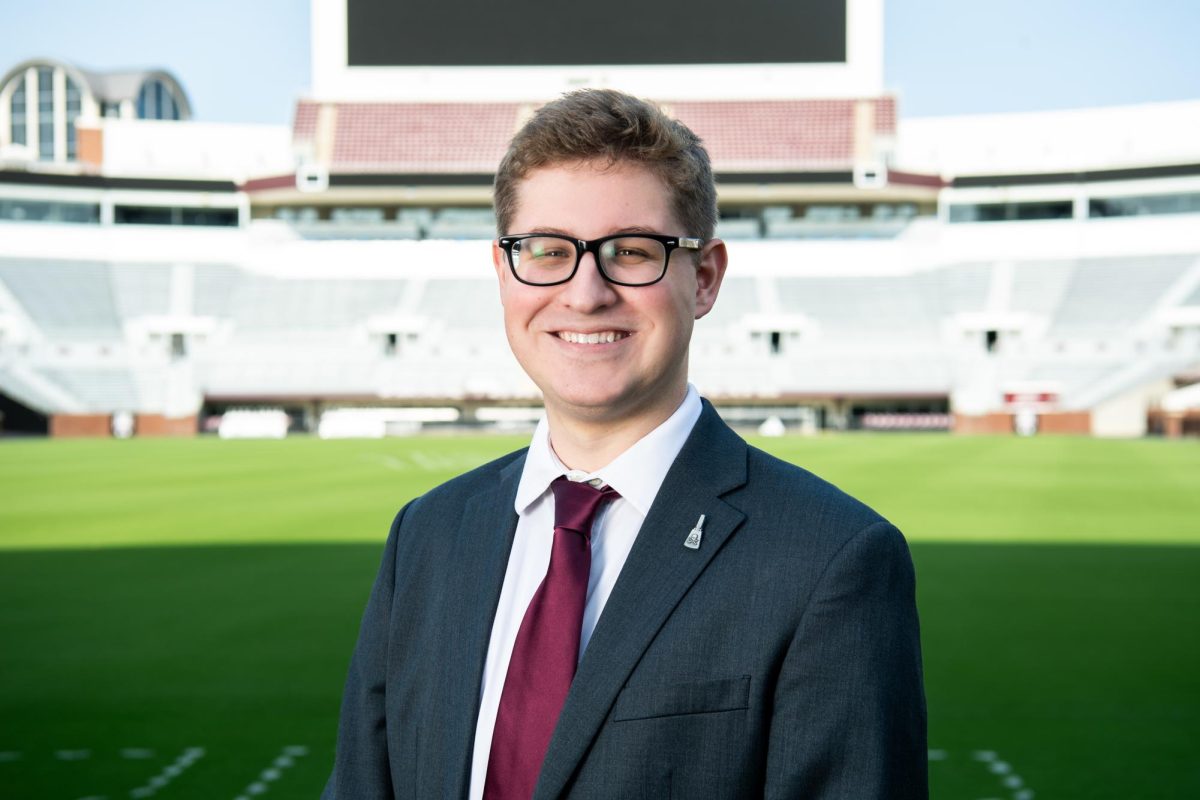Mississippi State University’s 2022 Annual Security and Fire Report indicated an increase in reported on-campus sexual misconduct since 2019.
Eighteen misconducts were reported in 2021, versus eight reported in 2020 and five in 2019. Additionally, the report indicated a marked increase in reports of fondling and stalking on campus since 2019.
MSU’s Office of Civil Rights Compliance oversees the investigation and resolution of civil rights complaints, including those that violate Title IX.
While the Annual Security and Fire Report described reports of on-campus sexual misconduct, OCRC Director Brett Harvey said most sexual misconduct happens off-campus.
Both on and off campus, Harvey said the OCRC receives between 50 to 75 reports of sexual misconduct in an academic year.
Harvey said people often bring complaints to the OCRC then drop the claims, so it can be difficult to identify why reports are increasing. He said his guess is that it is partially related to the COVID-19 pandemic.
“I know 18 is a high number for us; there’s no question about that. I think that does go definitely to the fact that we were getting in a cohort of students who had been essentially locked down … and as a result of that, may have been more alert and attuned, and maybe we were more worried about things,” Harvey said. “And, in some cases, may not have been well prepared for how to conduct themselves in social situations and may have done something that they should not have done.”
Tara Sutton, an assistant professor in the sociology department, has conducted research focused on sexual assault and other deviant behavior among adolescents and young adults.
In 2019, Sutton conducted a study among 1,500 MSU students and asked about a wide range of sexually violent behaviors, including unwanted touching, unwanted oral sex and unwanted penetration through coercion, incapacitation (use of drugs or alcohol) or by force.
She found that 36.3% of women had experienced any type of victimization while 15.7% of men experienced any sexual victimization.
“The gap between reported victimization and actual victimization is sometimes referred to as the ‘dark figure of crime’ — this gap is especially large for sexual assault. Since sexual assault is one of the least reported types of victimization, we cannot say rates are increasing just from reporting data,” Sutton said. “However, it is important to note that sexual assault is, unfortunately, very common.”
Sutton said several things could produce increased reports of sexual misconduct. For one, the amount of sexual misconduct could be increasing.
“There are several potential explanations for this,” Sutton said. “For example, alcohol use by perpetrators is linked to increased sexual violence. We also know perpetrators actively seek out and target those who are using substances and have mental health difficulties. We are seeing young people on campus exhibit increased mental health issues during and post COVID, and substance use is a common way people cope with mental health issues.”
Sutton said students are subject to broader national conversations around sexual assault in the digital age.
“Second, people may be more aware of what constitutes sexual assault, so self-report measures may be more accurate now than in the past. For example, when we ask people if they have been raped, they will also say no; but, if we ask questions about things like, ‘Did someone ever have sex with you when you did not consent?’, that same person will say yes. Given an increasing understanding of sexual assault, this mismatch may be less likely to occur,” Sutton said.
Third, Sutton said, individuals could feel more comfortable reporting to personnel on campus. However, a gap remains between the actual occurrence of sexual assault victimization and reporting.
“Prosecution rates are very low for sexual assault, and victims often report they feel ‘revictimized’ by the experience of reporting and seeking justice. There is a similar issue with Title IX offices on campus — Title IX offices are not victims’ services offices. They provide resources but are neutral arbitrators on campus, and students sometimes misunderstand that,” Sutton said.
There is often a lack of consequences or accountability for perpetrators of sexual violence on campus because of a lack of evidence, Sutton said.
To help victims of sexual misconduct, MSU formed the Office of Survivor Support in July 2020.
OSS Director Yvett Roby said the office is dedicated to students who encounter sexual misconduct, regardless of it occurring recently or in the past. The office offers confidential service, helping students recover from victimization through academic, medical and legal assistance.
“If a student needs us after hours, we’re on call. We will come out; we will meet that student wherever. If they need us at the hospital, we will go with them — 2 a.m., 3 a.m. — it doesn’t matter because we’re on call,” Roby said. “We have an after-hours on-call service where we will physically present to assist that student.”
Roby said a contributing factor to students feeling comfortable about visiting the office would be the free will to do so.
“They’re given options, and they have an opportunity to be empowered because if you think about it, so much has already been taken away from them,” Roby said.
OSS’s website at survivorsupport.msstate.edu and MSU’s Safe Line at (662) 325-3333 provides more information for victims of sexual misconduct.
Annual report indicates an increase in sexual misconduct
About the Contributor

Samuel Hughes, Former News Editor
Samuel Hughes served as the News Editor from 2023 to 2024.
0
More to Discover





























































































